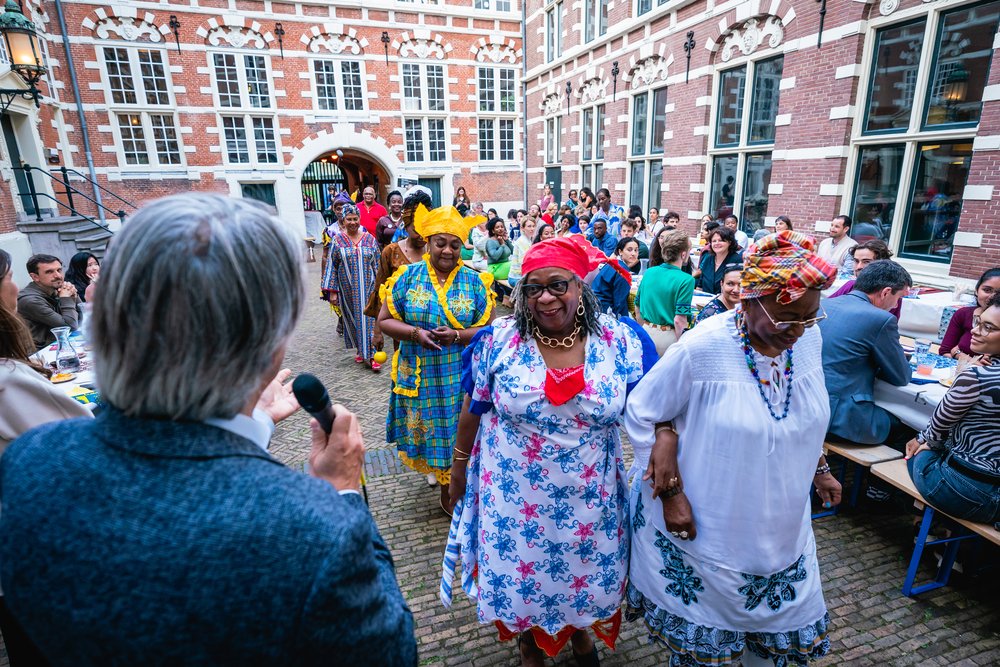Keti Koti, also known as Emancipation Day, is a significant celebration observed in Suriname and the Netherlands. This annual event commemorates the abolition of slavery in the former Dutch colony of Suriname and the Dutch Caribbean. Held on July 1st, Freedom Celebration is a vibrant occasion marked by cultural festivities, reflection, and recognition of historical struggles and achievements. This article delves into ten fascinating facts about Freedom Celebration, offering insight into its historical significance, cultural impact, and ongoing relevance.
The Meaning Behind Keti Koti
Keti Koti, which translates to “Broken Chains” in Sranan Tongo, symbolizes the end of slavery. The term reflects the liberation of enslaved individuals and the shattering of the chains that bound them. The day is a powerful reminder of the struggle for freedom and the importance of acknowledging and celebrating emancipation.
Historical Background of Keti Koti
Keti Koti commemorates the official end of slavery in Suriname on July 1, 1863. On this date, the Dutch government officially abolished slavery in its colonies. However, the full impact of emancipation took time to manifest, as many former slaves continued to work on plantations under harsh conditions until they were fully freed in 1873.
Keti Koti’s Role in Surinamese Culture
In Suriname, Keti Koti is not just a historical event but a cornerstone of national identity. The day is marked with vibrant parades, cultural performances, and ceremonies that celebrate Suriname’s diverse heritage. It is a time for Surinamese people to come together to honor their ancestors and reflect on the journey from oppression to freedom.
The Celebrations in the Netherlands
The Netherlands also observes Keti Koti, particularly in cities with significant Surinamese communities, such as Amsterdam. In the Netherlands, the day is marked by public events, educational programs, and discussions about the legacy of slavery and colonialism. It serves as an opportunity for Dutch society to confront its historical past and promote social justice and reconciliation.
The Impact on Modern Society
Emancipation Day plays a crucial role in modern discussions about race, identity, and social justice. The celebration brings attention to ongoing issues related to racial inequality and the legacy of slavery. It encourages dialogue and reflection on how historical injustices continue to shape contemporary society and fosters a greater understanding of cultural diversity.
Key Figures in History
Several prominent figures have played pivotal roles in the history of Keti Koti. Notable among them is Anton de Kom, a Surinamese activist and author who fought against colonial oppression and wrote extensively about the plight of enslaved people. His legacy is celebrated during Emancipation Day for his contributions to the fight for freedom and justice.
The Role of Music and Dance
Music and dance are integral to Keti Koti celebrations, reflecting the vibrant cultural heritage of Suriname. Traditional performances include drumming, dance routines, and music that draw from African, Indigenous, and Caribbean influences. These artistic expressions not only commemorate the past but also celebrate the rich cultural tapestry of Suriname and the Caribbean.
Educational Significance
Education plays a vital role in Emancipation Day observances. Schools and institutions often organize events to teach students about the history of slavery, emancipation, and the significance of the day. This educational aspect helps ensure that the lessons of Emancipation Day are passed onto future generations, fostering a deeper understanding of history and its impact on present-day society.
Promoting Unity and Reconciliation
Emancipation Day serves as a platform for promoting unity and reconciliation among diverse communities. The celebration encourages people to come together, regardless of their background, to reflect on shared history and work towards a more inclusive and equitable future. It fosters a sense of collective identity and shared responsibility in addressing the legacies of the past.
The Future of Celebrations
As the world evolves, so too do the ways in which Emancipation Day is celebrated. Future observances are likely to continue incorporating modern elements while preserving traditional practices. The celebration will increasingly focus on addressing contemporary issues related to race, identity, and social justice, ensuring that Emancipation Day remains a relevant and impactful event for generations to come.
Conclusion
Keti Koti is a profound and multifaceted celebration that honors the end of slavery and the enduring struggle for freedom and justice. From its historical roots to its modern-day significance, the day provides a powerful reminder of the progress made and the challenges that remain. Through vibrant celebrations, educational initiatives, and community engagement, Emancipation Day continues to inspire reflection, unity, and a commitment to social justice. As we look to the future, the enduring legacy of Emancipation Day will remain a testament to the resilience and strength of those who fought for freedom and equality.
FAQs
Q1.What is the significance of Keti Koti?
Keti Koti, meaning “Broken Chains,” commemorates the abolition of slavery in Suriname and the Dutch Caribbean. It symbolizes the end of oppression and the celebration of freedom and equality.
Q2.When does the celebration take place?
The celebration takes place annually on July 1st, marking the anniversary of the abolition of slavery in Suriname and the Dutch Caribbean.
Q3.How do people in Suriname observe the day?
In Suriname, people observe the day with vibrant parades, cultural performances, and ceremonies. It is a time to honor the nation’s heritage and reflect on the journey from oppression to freedom.
Q4.What significance does the celebration hold in the Netherlands?
In the Netherlands, the day is marked by public events, educational programs, and discussions about the legacy of slavery. It provides an opportunity to address historical injustices and promote reconciliation. In addition, it fosters dialogue and understanding among diverse communities.
Q5.How can people learn more about the celebration?
People can learn more through educational programs, cultural events, and community activities organized by various institutions and organizations. Additionally, these opportunities provide valuable insights and foster deeper engagement. These resources offer insights into the historical and cultural significance of the day; therefore, they help deepen understanding and appreciation..
Also read: Beautiful Amsterdam: 10 Iconic Landmarks and Hidden Gems





